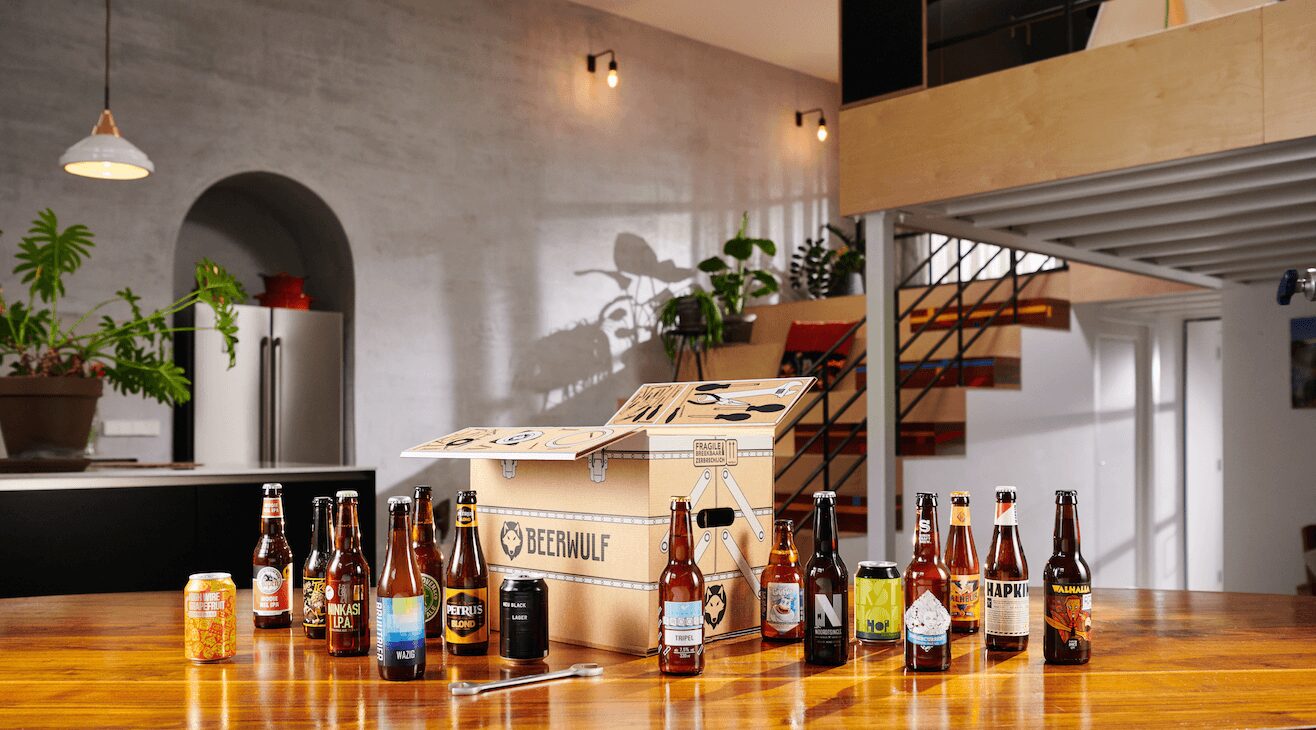Key takeaways
Either you’re a beer lover or not, you can’t deny the facts: beer is one of the oldest drinks in the world, and it has been connecting people ever since its creation. It can even be argued that it is at the root of humanity’s ability to develop technology and civilisation, although we won’t go that far in this article.
In recent years, we’ve been witnessing a remarkable rise in the popularity of craft beers, with more and more breweries popping up all around the world and even individuals experimenting with their own recipes.
From blond pils to complex triples, there is probably a type of beer you won’t mind having a sip or two from.
It was that wave that Heineken hoped to ride when they hired SparkOptimus to create a corporate venture with them. Merging the specialty beer trend with the rise of e-commerce, the corporation set out to create a digital platform that enables consumers to discover and buy beers from small breweries that don’t have the infrastructure to reach wider markets.
Thus, Beerwulf was born. Heineken assigned Hans Böhm, an employee for almost 20 years and, at the time, Senior Director Global Cider, to take the lead as managing director of the startup from the very beginning. Then the company took a step back and watched from a distance. Beerwulf was set up as its own separate entity that reports directly to Heineken’s board, yet it makes its own decisions and decides its own faith. This tactic not only avoids the corporate politics that often stand in the way of innovative processes, but is also a brand statement.
“But we have also cut all ties. If we want to create a credible internet store, then that must be done as a retailer, not as a brewer. Beerwulf.com should develop into the European specialty beer e-store.”
– Hans Böhm, Managing Director of Beerwulf
Beerwulf isn’t a branch of Heineken, but a completely different company that acts as a retailer, not only to the mother corporation’s portfolio but also to several of its competitors’ brands.
The project started in early 2016 and went from idea to market launch in a record time of 9 months, launching to the public in March 2017. This was only possible due to the partnership with an experienced digital strategy consultant and the choice of using external partners to build the technology and marketing platforms, such as Valtech.

Beerwulf’s popularity speaks for itself. In just one year, their website grew from 400 orders per week to 400 orders per hour. This achievement granted them the 2018 golden Dutch Interactive Award (DIA). Besides The Netherlands, they’re already shipping to Belgium, the UK, Germany, and France, aiming to continue rapidly expanding to become the European market leader within 3 years.
Beerwulf is also exploring the idea of offering a subscription model and tapping into the B2B world. They also frequently enter into partnerships, not only with new brewers but also with specific markets experts. A recent example is a collaboration with e-commerce giant bol.com.
The startup launched with an offer of 250 beers, and is currently selling over 873 different beers from over 150 different brewers from 20 different countries. Every single brewer has a specific corner on the website where they can tell their story and connect to consumers. Beerwulf also elects and highlights one brewery per month, encouraging experimentation and discovery.
“There are informative blog posts, detailed flavour descriptions, suggestions based on current preferences, and a wealth of information about the brewers. The assortment has been carefully put together.”
– Hans Böhm, Managing Director of Beerwulf
If you’re as thirsty for a beer as I am now, I suggest taking a look at the hand-picked Belgian Family Brewers pack. But if you’re feeling festive, or still lack a Christmas gift, Beerwulf also offer seasonal packs, like this Advent pack.
Beerwulf is a great example of a big corporation spotting a gap in the market that they could never fill as a company, and using corporate venturing to jump on the train and get the best of both worlds.
Do you want to share your corporate startup story with the community, or do you have a question about intrapreneurship? Let’s talk!
50 Corporate Venture Examples
Find out how top companies build ventures from scratch to unlock markets, fuel growth, and generate new revenue.








